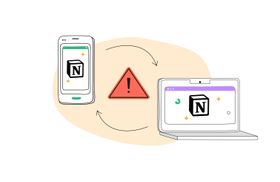Overcome the Dangers of Knowledge Hoarding in the Workplace
Published July 28, 2022

The problem of knowledge hoarding has become a growing concern in today's workplace. When employees hoard knowledge, they intentionally withhold critical information from their colleagues and the organization for personal or professional reasons.
Knowledge hoarding can also be costly for the organization. According to a study by International Data Corp, Fortune 500 companies lose approximately $31.5 billion annually by failing to share knowledge among individuals and across teams.
Why Employees Hoard Knowledge
Some reasons why employees might hoard knowledge include:
Leverage
An employee might believe that possessing something others lack gives them power—in this case, knowledge. For instance, having certain knowledge could give someone an upper hand or make them a star performer, solidifying their position as a valuable team member.
Similarly, if they are the only person in the team or company who understands how to handle unique challenges, they would be indispensable or immune to layoffs.
Fear
It's no secret that people don't like to be wrong. For example, someone working on a project may discover something that will make it better—but instead of sharing this knowledge, they keep it to themselves for fear of rejection or ridicule from colleagues and supervisors.
Because of this fear, valuable knowledge is lost, and potentially innovative ideas are never realized.
Competition
Competition is a great motivator, but it also comes with its cons, especially in organizations with a culture of unhealthy competition. When employees are rewarded for individual victories rather than team achievements, they may be more likely to keep any valuable knowledge to themselves to stay at the top of the ranks.
Trust Issues
Unfortunately, about 1 in 4 employees do not trust their employers. Layoffs, benefit cuts, and job insecurity can all contribute to distrust. Furthermore, rivalry within teams may cause workers to mistrust team members, leading to knowledge hoarding.
Potential Consequences of Knowledge Hoarding
Employees who hoard information do the business or organization a great disservice. Knowledge hoarding impedes corporate growth in many ways:
- Teams or individuals may end up causing knowledge and information silos, which hamper efficiency. Employees who do not have the knowledge they need may waste significant working hours looking for it or creating it from scratch.
- Without a refined system for knowledge management, you risk losing the expertise or tacit knowledge when an employee leaves.
- Employees who cannot work due to knowledge setbacks might be frustrated and quit the company.
- It will impede the onboarding of new talent, or new employees may struggle to transition to their new positions.
Benefits of Knowledge Sharing
In contrast to knowledge hoarding, knowledge sharing offers companies a multitude of benefits.
Encouraging a culture of knowledge sharing means everyone on the team feels like they have access to the tools needed to succeed—and more importantly, it means that everyone is motivated by team success.
A knowledge-sharing culture provides companies with the following benefits:
- It fosters a culture of learning where employees want to take part in sharing and obtaining knowledge actively.
- There is improved productivity and efficiency since employees have access to knowledge and do not have to wait for a specific person to finish their tasks.
- It helps to heighten employee engagement and, in turn, reduce employee turnover.
- Collaboration is encouraged, where employees openly communicate with their peers instead of working in silos.
How to Prevent Knowledge Hoarding
Make It Easy to Share Knowledge
Sharing knowledge can often be time-consuming. If just one individual has the knowledge, they'll have to keep explaining the same thing repeatedly, which is time away from more valuable tasks.
In the absence of a system, some employees may become frustrated when searching for the necessary information.
A knowledge management system (KMS) can promote knowledge sharing by centralizing all relevant information, making it easy for team members to collaborate and access information from any location.
However, with all the ways data can be stolen, it's essential to understand the risks and take steps to protect yourself. Having data center security measures in place can help protect vital company information from getting into the wrong hands.
Provide Clear Guidelines
One of the best approaches to counteract knowledge hoarding in your organization is to teach employees how to share their knowledge. As part of your knowledge management strategy, your company should adopt a user-friendly KMS and take employees on a walkthrough so they feel comfortable making it a part of their routine.
Additionally, proper document management of your guidelines can help make this process a breeze every time new employees are onboarded.
Reward Those Who Share Knowledge
Because knowledge sharing isn't natural for everyone, you might need to give your employees an incentive to share. You can encourage healthy competition by holding a contest and rewarding everyone who adds to your internal knowledge base within a certain deadline. Incentives don't have to be extravagant, but they should be something your employees want.




